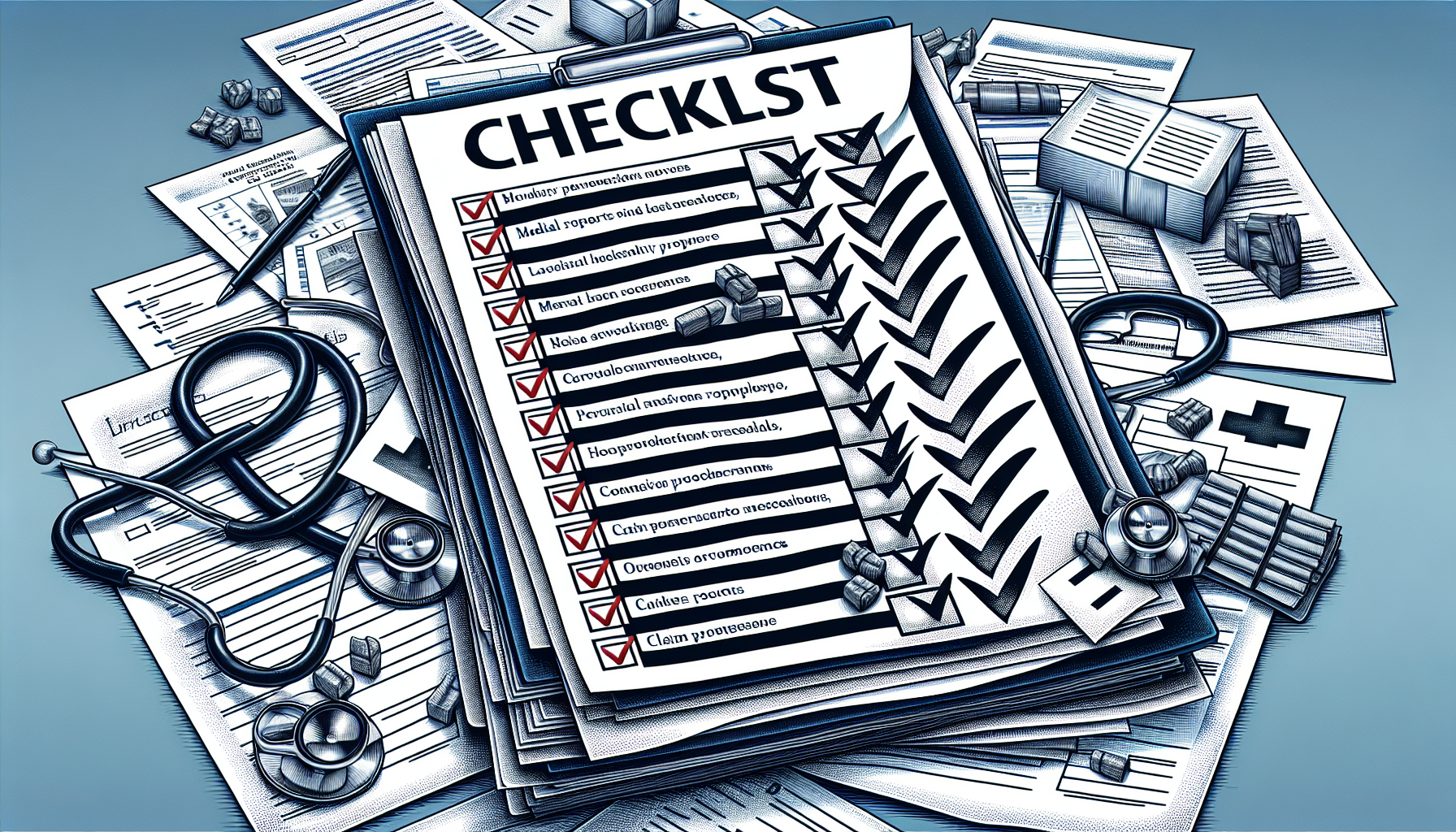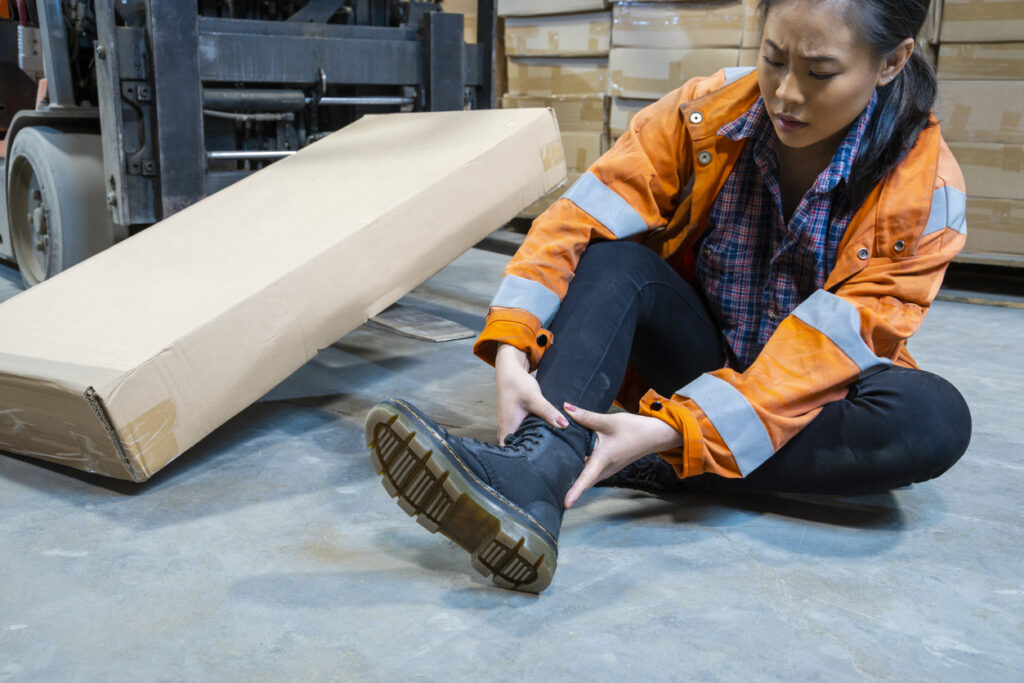Navigating workers compensation in California raises lots of questions, including ‘how long can you be on workers comp in California?’
Workers’ compensation laws in California are designed to provide financial and medical benefits to employees who suffer work-related injuries or illnesses. These laws mandate that employers carry workers’ compensation insurance to cover medical expenses, lost wages, and rehabilitation costs for injured workers. The benefits include temporary and permanent disability payments, medical treatment, vocational rehabilitation, and death benefits for dependents in case of fatal injuries. Temporary disability benefits are generally limited to 104 weeks, but can extend to 240 weeks for severe injuries, while permanent disability benefits can provide lifelong support for workers who are permanently unable to return to their jobs.
What to Know About Workers Compensation Benefits:
- Temporary disability benefits may provide financial stability and are calculated at two-thirds of average weekly wages, within minimum and maximum limits set by law.
- Permanent disability benefits can cater to lasting impairments from work injuries, determined by a disability rating which influences the duration and amount of benefits received.
Duration of Workers Comp Benefits in California
The clock starts ticking the second a workplace injury occurs, and knowing how long you can receive workers compensation benefits is like having a roadmap for your recovery journey. In California, the standard duration for these benefits is typically up to 2 years, but each case is different. This timeframe was designed to provide injured workers with the temporary support they need to get back on their feet.
However, life isn’t always straightforward, and neither are injuries. For those unfortunate enough to suffer from severe conditions like serious burns, amputations, or chronic lung disease, California law may extend disability benefits.
Making sense of the workers compensation system during recovery can be daunting. Having a clear grasp of your workers compensation claim’s intricacies is crucial and an experienced workers’ compensation attorney, like the ones at Lawyers for Justice, P.C. can help you navigate the process.
Exploring Temporary Disability Benefits
Temporary disability benefits can serve as a support system when a work-related injury sidelines you. They offer financial stability so you can concentrate on healing. If you’re unable to work, or can only handle limited duties, these benefits step in to ease the burden.
If your doctor approves light duties and your employer is unable to meet the limitations, you may continue to receive temporary disability benefits as you heal.
Within the scope of temporary benefits, you might come across two types: temporary total disability if you’re entirely incapacitated, and temporary partial disability if you can perform some, but not all, of your job responsibilities.
Calculating Your Temporary Disability Payments
How much money should you get while on temporary disability? You’re generally eligible for up to two-thirds of your average weekly wages. This formula takes into account the full spectrum of your gross income, ensuring that your benefits reflect your actual earnings.
However, before you begin crunching the numbers, bear in mind that certain legal boundaries are in place. Your disability payments are bound by minimum and maximum limits set by California’s Labor Code. These parameters are there to maintain fairness and consistency for everyone.
If you’re able to work in a reduced capacity and earn some income, your disability payments may be adjusted accordingly.
Navigating Permanent Disability Benefits

When temporary benefits are insufficient, permanent disability benefits step in. They’re the financial lifeline for workers whose injuries leave a lasting mark, offering long-term assistance tailored to the severity of your injury or illness.
Medical and Rehabilitation Services Coverage
After a workplace injury, your recovery journey might require medical treatments, therapies, and possibly even looking for a new job. Workers’ compensation benefits in California covers the necessary medical care expenses related to your injury. This ongoing coverage is there to ensure that you have access to the care you need, for as long as you need it.
Workers’ compensation benefits are more than just a paycheck replacement; it’s a comprehensive system designed to cover your medical treatment, compensate you for lost wages, and assist in your journey back to the workplace. By taking full advantage of the medical and rehabilitation services coverage, you’re setting the stage for a successful and sustainable return to the workforce.
Maximizing Your Workers Compensation Claim

The Workers’ Compensation Claim Form (DWC 1) is your starting point to file a workers’ compensation claim; fill it out meticulously to kick off your claim. If your employer doesn’t provide this form, it’s readily available on the state’s Division of Workers’ Compensation website.
Gathering all relevant documentation is another crucial step. This includes medical records, reports, and any other evidence that supports your claim. The more thorough you are, the stronger your case will be. And remember, consulting with the experienced workers’ compensation attorneys at Lawyers for Justice, P.C. can be a game-changer. They can guide you through the claim process, ensuring you don’t leave any benefits on the table.
Dealing with Workplace Injuries
The clock starts ticking the moment a workplace injury or illness occurs. A late report of your injury or illness can influence your workers compensation claim benefits. You have typically 30 days to report the injury to your supervisor. If you miss the deadline, you could miss your chance to receive permanent disability benefits or other temporary disability benefits.
Protecting Your Income Post-Injury
In California, injured workers who are permanently disabled and can’t return to their previous jobs sometimes have access to a $6,000 voucher for supplemental job displacement benefits. This voucher can be a lifeline, offering the chance to gain new skills and enter a different field that accommodates your new disability.
To be eligible for this voucher, you need to have a confirmed workplace injury resulting in a permanent disability. However, if you’re offered a suitable job that fits your disability limitations and you turn it down, you might lose eligibility for this benefit. Vocational rehabilitation services, including job training and placement assistance, can also become available for up to two years.
When To Do When Workers Compensation Benefits Stop
When exactly does workers comp in California stop payments? Maximum medical improvement (MMI), marks the point at which your condition has stabilized and is unlikely to improve significantly with further medical treatment. Usually workers’ compensation benefits can stop then, even though you may not be fully recovered.
Another reason payments might stop is if you’ve reached the maximum duration allowed under California law after your 104 weeks. Once you hit that mark, your temporary disability benefits will typically come to an end. It’s a reminder that while workers’ compensation is designed to support you through recovery; it’s not an indefinite solution.
Legal Assistance and Workers Compensation Cases
When dealing with the workers’ compensation system, there are times when you require a skilled guide to help you navigate your workers’ compensation claim. A workers’ comp lawyer is your advocate to ensure that your voice is heard and that you receive the benefits you deserve.
If your claim has been denied, an attorney specializing in workers’ compensation can help you understand your rights, gather necessary evidence, and represent you in hearings and appeals. You can stand a better chance of getting back the maximum of compensation for your injury or illness with a lawyer by your side.
An attorney’s role is to defend your interests, from filing the initial claim to negotiating with insurance companies and, if necessary, fighting for your cause in front of a workers compensation judge.
Obtaining legal assistance in a workers compensation case is not only about advocating for justice; it’s about safeguarding your future. LFJ’s California workers’ compensation attorneys are seasoned in the intricacies of the system and can be invaluable allies as you seek to ensure that your recovery and well-being are prioritized.
Frequently Asked Questions
how long can you be on workers’ comp in california? In California, you can generally receive temporary disability benefits for up to 104 weeks, with the possibility of extension for severe injuries. Keep in mind that this duration can vary based on the specific circumstances of your workers’ compensation claim claim.
how long does workers’ comp last in california? It can last for up to 104 weeks, depending on the case.
how long can a workers’ comp claim stay open? Typically, the statute of limitations for filing a workers’ compensation claim is one year from the date of injury or illness, for most employees. If you don’t file a claim within that time, you might lose your rights to benefits.
how long do i have to see a doctor after a work injury? There is not aspecific deadline for seeing a doctor after a work injury, but the sooner you seek medical treatment, the better.
how long do you have to report a work injury in california? In California, a workplace injury must be reported within 30 days of the incident. Usually, a workers’ compensation claim must be filed within one year.
what happens if you get hurt at work off the clock? You may still be eligible for disability benefits. Reach out to LFJ today to explore your options.
how long do you have to file a workers’ comp claim in california? An injured worker should file a claim within 1 year from when the incident took place.
when to file workers comp? The sooner the better. There are specific deadlines in place to recoup workers’ comp benefits. If you miss them, you may miss your chance to get reimbursed.
how long does it take for workers comp to kick in? Typically, injured employees serve a waiting period of three-calendar days. The days do not need to be consecutive.
how long can someone be on workers comp? It depends on the injury or illness, but typically up to 104 weeks.
MORE FAQ’s
what factors affect the amount of my permanent disability benefits?
The amount of your permanent disability benefits is influenced by factors such as the severity of your injury, your age, job type, and adherence to prescribed treatment and rehabilitation plans. These factors play a significant role in determining the benefits you may receive.
can I still receive benefits if I can work in a limited capacity?
Yes, you may still be eligible for temporary partial disability benefits if you can work with limitations. These benefits can be based on your reduced earning capacity.
what should I do if my workers’ comp claim is denied or disputed?
If your workers’ comp claim is denied or disputed, consider seeking legal assistance from a workers’ comp lawyer to navigate the appeals process and secure the benefits you deserve.
Last Updated on May 30, 2025



